- Home
- Linda Lael Miller
Country Strong--A Novel Page 2
Country Strong--A Novel Read online
Page 2
Now, here stood this young girl, literally the mirror image of the Reba they’d all known eighteen years ago.
They say everybody has a double.
Cord hadn’t believed that—until now.
The resemblance could be coincidental, he reasoned, but that seemed a lot more unlikely than a biological connection. She had to be Reba’s sister, niece, cousin...
Or daughter.
Was this girl, somewhere in her teens, Reba’s child?
That possibility jarred Cord, colliding with a few other possibilities rolling around in his head at the moment.
Thinking he ought to say something, he opened his mouth, but his brain, busy with calculations, refused to cooperate. He couldn’t form a single rational word.
Finally remembering his manners, Cord got to his feet and, awkwardly, J.P. and Eli stood up, too.
Eli was the first to recover the power of speech.
“Who are you?” he asked the visitor. That was Eli, direct to the point of bluntness. In his line of work, as the local sheriff, that was a plus, though it often hampered him when it came to ordinary communication.
“Tonight,” she said with a little shiver, which she tried to hide, “my name is Zelda.”
Cord was still thrown by the mere fact of this woman-child, but he recovered enough to ask, “What is it the rest of the time? Your name, I mean.”
She made a face and jutted out her chin, at once obstinate and defensive, her bare, skinny arms wrapped tightly around her middle, as though she thought she might splinter into pieces if she didn’t keep a firm grip.
“Whatever I decide it will be,” she replied crisply, but her bravado was clearly slipping now.
Cord took his denim jacket from the back of his chair and draped it around her shoulders without comment, while J.P. silently offered her a place to sit, drawing back a chair, indicating it with a gesture of one hand.
She sank gratefully onto the wooden seat and surveyed the scarred tabletop, strewn with poker chips and cards dropped and forgotten when she made her grand entrance.
“How old are you?” Eli demanded.
“Twenty-two,” the girl said, after the briefest hesitation.
“Bullshit,” J.P. muttered, watching her, studying her, as they all were.
By then, the dog had lost interest, no doubt concluding that the new arrival represented no threat to his master and could therefore be safely ignored. He was curled up alongside J.P.’s chair again, as he’d been all evening.
“Okay,” she admitted, with an exaggerated sigh of long-suffering tolerance, “I’m seventeen. Which is why I had to come in through the back door, since this joint is evidently a saloon or whatever.”
“All right—Zelda,” Eli persisted, “back to the point of this conversation. Who are you, and what are you doing here?”
She studied her overlong fingernails, which were painted a troubling shade of greenish purple, dusted with glitter and noticeably chipped. Then she raised her Reba-eyes, wide and brown-gold, swept a haughty glance from Eli to J.P. to Cord, and finally swung it back to Eli.
“That was two questions,” she pointed out mildly. “But I suppose, since you’re the county sheriff, you have to grill every stranger you see.”
So, she’d done her research. When in doubt, google.
“That wasn’t an answer,” Eli said.
“Zelda” raised her shoulders briefly, then lowered them again. Gave another little sigh, as though put upon. Lord, but teenagers could be a pain in the ass.
“You’ll have plenty of time to quiz me later,” she said, sitting up straight and tossing her head so that long tendrils of wet, tangled hair tumbled back over her left shoulder. “For now, I’m calling the shots.”
The gesture was familiar, another echo of Reba, and so was the big talk.
“Unless,” she went on, assuming a thoughtful expression, “you plan to run me in on a vagrancy charge or something.”
“I could do that,” Eli warned, but he was wearing down, Cord could see that. Hell, they all were.
It was surreal, as if they’d slipped out of the world they knew into some parallel dimension, where the rules were very different. Here, in this new place, it seemed that Reba wasn’t dead and gone, long before her time. Her presence was palpable.
And she wanted something.
Cord hadn’t gone to Reba’s funeral; none of them had. Wouldn’t have known she’d died if Brynne Bailey hadn’t come back to Painted Pony Creek to take over her parents’ failing restaurant and mentioned it one morning, when the three of them stopped by for breakfast.
Breast cancer, Brynne had said. About two years ago. It had been a shockingly quick decline. All very sad. She hadn’t attended the services, either, since she’d been out of the country at the time on a research trip for her job with an art gallery back east, but she’d seen a notice on social media and sent flowers.
She hadn’t said anything about Reba having kids.
Shaken again, Cord refocused his attention on Zelda.
She was wearing a skimpy tank top and stylishly ragged skinny jeans. He registered that much. And there was a tattoo on the rain-beaded skin at the base of her throat. A musical note. A double one with two stems.
J.P. got out his cell phone, peered at the screen. He needed glasses but was too vain to wear them in public, so he squinted a lot.
“Calling the cops?” the kid asked in a tone breezy with impudence. She darted a glance in Eli’s direction. “That seems unnecessary since the head honcho is right here.”
“Listen,” J.P. interjected, ignoring her remark, “can we get down to the proverbial brass tacks here?” He slipped his phone back in his shirt pocket and glared down at the girl, marking off each point on a finger as he made it. “You’re seventeen years old. You just turned up in the back room of a seedy beer hall in small-town Montana, during the middle of the goddamned storm of the century. None of us ever saw you before and given the size of this place, that means you aren’t a local. It follows that you’re a runaway, and maybe in some kind of trouble, too. Somebody, somewhere, is worried sick about you.”
Some of the zip went out of the girl. “Nobody’s worried about me,” she said, with a note of sadness none of them missed. Again, she examined their faces, each in turn. “Cord Hollister, J.P. McCall and Eli Garrett. That’s you guys, right?”
“Right,” Cord admitted, grimly amused. Google did have a lot of answers—and, in his opinion, anyway, a lot to answer for. “How about returning the favor and telling us who you are and why you’re here.”
“I’m hungry,” she said, as if she hadn’t heard a word he said. “And I could really use a cup of hot coffee, strong, with three sugars and real cream. None of that powdered crap.”
J.P. sighed. “I’ll get you a hamburger and some java,” he told her. “On one condition, of course—that you stop jerking us around and tell us what’s going on here.”
She smiled Reba’s smile, and Cord, for one, felt as though he’d been gut-punched. “A hamburger would be awesome,” she told J.P. sweetly. “Make it a deluxe, with a double order of fries, extra cheese and bacon, crisp.”
“Not until you give us some answers,” J.P. retorted.
“Okay, but I intended to spill my guts all along.” She flung another glance at Eli, full of defiance. “I didn’t thumb my way halfway across the country to watch a bunch of yokels play poker in some backwater dive. I have a very good reason for being here.” A worried pause. “Does that mean I don’t get the burger?”
J.P. merely shook his head, walked to the inside door, which led to the main tavern, shoved it open a crack and called, “Hey, Molly. Mind taking an order?”
At last Cord and Eli sat down.
It was a relief to Cord, since his knees had turned wobbly.
Molly, a plump, sweet-faced woman they’
d all known since childhood, appeared, pad in hand, trying to peer past J.P.’s shoulder and get a look at the girl.
Having lived in Painted Pony Creek since her teens, Molly knew just about everything that went on there, and she planned to keep it that way.
Now whispers were exchanged, Molly’s demanding in tone, J.P.’s easygoing and smooth as could be.
Molly sighed audibly. “Willie isn’t going to like it, that girl being on the premises, I mean. She can’t be more than sixteen years old, and the state could pull his liquor license—”
“The kid isn’t drinking, and technically, she’s not in the bar,” J.P. pointed out. “We’ll take full responsibility for her. Just bring the burger and fries, okay? Coffee, too. Lots of sugar and cream. The wet kind.”
“Not the low-fat stuff,” the girl specified decisively, before adding a belated “please.”
“Burgers all around,” Molly said, putting pencil to pad with a flourish. The space between her overplucked brows remained furrowed, though, and her eyes narrowed as she took in Cord, then Eli, then J.P. “The three of you have been swilling beer since you got here, and I’ll bet those peanuts I brought with the first round are all you boneheads have had to eat since lunch.”
“Fine,” J.P. agreed, looking back at his friends for confirmation, receiving none, and proceeding anyway. “Burgers all around. Put them on Eli’s tab—or Cord’s. I paid for the pizza last week.”
Molly took advantage of J.P.’s distraction to slip past him and trundle purposefully across the room, all pudgy dudgeon in her mom jeans and Johnny Cash T-shirt, to stand next to the girl’s chair.
“You in trouble, little gal?” she asked in her forthright way. Molly wore too much makeup, and her dyed blond hair was piled on top of her head and sprayed to immobility, but she was as kindhearted as they came.
“I’m all right,” the girl said politely.
Molly looked skeptical. “You’re not from around here. I know every kid in this town, and I would’ve seen you.”
“No, ma’am, I’m not.” She seemed so small and fragile in that moment, wet and skinny and pale, her eyes raccoon-like, encircled by smudged mascara, and so world-weary that Cord ached to look at her.
She was a baby—seventeen, if she was telling the truth, which was by no means a given—far from home. The thought of her or any young girl hitching rides along lonely highways made him cringe. God knows what she’d been through on the road, what had prompted her to bolt in the first place.
“You tell me your name, honey,” Molly coaxed. “I’ll get in touch with your folks. Whatever happened, it can be made right.”
“Molly,” Cord interrupted, his voice a little shaky with an emotion he couldn’t quite identify. Not that he tried. “The kid’s fine for now. What she needs most is a plate of hot food and some strong coffee. We’ll figure out the rest in good time.”
Molly ignored him, except for a shushing motion of one hand. “Speak up, little girl. Your family must be beside themselves, wondering where you are. Far as they know, you could be dead in a ditch somewhere. So give me a name—or better yet, a phone number—and I’ll get word to them.”
Nothing. The visitor seemed to shrink inside herself, as though trying to disappear, and she wouldn’t meet anybody’s eyes.
Since Cord had gotten nowhere with Molly, J.P. gave it a shot. “We’re fixing to starve to death here,” he cajoled, with just the right amount of slick cowboy charm. “How about mustering up that grub?”
Another rumble-and-roar rocked the skies overhead, momentarily halting the exchange.
When the cracking of thunder subsided, long seconds later, Molly shook a finger at J.P. and proclaimed, “Wouldn’t surprise me if that was a message from the good Lord Himself, J.P. McCall, telling you to watch your mouth and show some respect for your elders.”
J.P. laid a hand to his chest, fingers splayed. “Why, Miss Molly,” he teased, “I have the utmost respect for my elders, and for you in particular.”
Molly’s mouth tightened, and she shook her head in mock disgust, although a twinkle danced in her pale blue eyes. She gave the girl one more searching look and reluctantly left the room.
No one spoke right away, despite the lull in the storm that would have made conversation feasible.
Eli gathered the cards back into a deck and thumped the edges against the tabletop, end over end. Repeatedly.
He tended to fidget when he was thinking.
J.P. got out his phone again, swiped to his favorite app and frowned at what came up on the screen. Punched a few keys, probably checking his sizable stock portfolio to find out if he was richer than he’d been five minutes ago.
Cord settled back in his chair and folded his arms, watching the girl as Trooper roused himself, got up off the floor and rested his muzzle on her blue-jeaned thigh.
Tears glimmered in her eyes as she laid a gentle hand on the dog’s head and whispered, “Hey, buddy. How ya doin’?”
“You have a dog of your own?” Cord asked casually. “Back home, I mean?”
She bit her lower lip, shook her head. “Not anymore,” she said wistfully.
“You look a lot like somebody we used to know,” J.P. ventured, having put his phone away.
Eli stopped making that infernal noise with the cards, and Cord was grateful.
“Do I?” The girl’s aplomb was back, just like that. Gone was the defeated, rain-drenched waif, wandering the countryside on a stormy night, taking shelter in the cardroom behind Sully’s, replaced by a fiercely determined she-warrior. “Well, then, I guess that’ll make it easier to convince you.”
There was a long moment of pure tension, stretched to the snapping point, and then Cord asked, “Convince us of what?”
She took her time answering. “I’ll get to that,” she said, sitting up very straight now, still stroking Trooper. “After we eat.”
Eli leaned forward, his face solemn. “No more games,” he said. “You’re the spitting image of Reba Shannon. What’s your connection to her?”
The kid hesitated, then opened her mouth to answer—or dish out more guff—but Molly came through the swinging door with an eloquent crash, carrying a tray. The mugs rattled when she plunked it down hard in the middle of the table, and coffee splashed around in the carafe.
“The burgers will be ready in a few minutes,” she announced with a sniff.
And then she was gone again, snit and all.
“What was that about?” the girl asked.
J.P. was pouring coffee with a slight smile on his face. “Molly hates a mystery,” he said lightly. “She’ll be in a fine fuss until she knows what’s going on, right down to the last detail. Chapter and verse.”
The girl helped herself to one of the mugs and added plenty of sugar and thick cream before lifting it to her mouth.
“What is going on?” Eli tried again. He might have intimidated a lot of teenagers with his official status, his dark scruff of a beard and his practiced glare, but this one merely sipped coffee and smiled with her eyes.
She must have downed half that first cup before lowering it and saying softly, “Reba Shannon was my mom.”
Was.
The reminder packed a punch. Reba, a vital force, was gone.
“Oh, don’t worry that I’m scamming you. I actually have a birth certificate.” She flinched. “I can show it to you later, okay, Mr. Sheriff?”
It still seemed impossible... Except that, no, it wasn’t. Reba’s death was hard enough to believe and, in some ways, to accept. But she had a kid? Seventeen or eighteen? He wasn’t going to think about the potential implications of that. Implications not just for him but for all three of them. That kind of reflection would have to wait...
“We won’t worry about it now,” Eli said. “But back to Reba...”
The girl must have read something in their fac
es. “You knew, then? That she died?” she asked.
“Yes,” Cord answered at some length, his voice so hoarse it hurt. “We knew.”
Accusations sparked in the amber eyes. “I don’t remember seeing any of you at the funeral.”
Cord’s own eyes scalded, and he couldn’t look at either J.P. or Eli. Didn’t dare.
“It was too late by the time we found out,” Eli said.
“Would you have shown up, any of you, if you’d known earlier?” It was a challenge; she knew the answer.
Unfortunately, she was right.
The ensuing silence blocked out even the bull-bellow roar of the storm.
“Probably not,” Cord said.
The girl bristled again, bit her lower lip.
The truth was, Reba had done her share of damage during her months in Painted Pony Creek. He wasn’t about to lay that on this frightened, broken, lonely child, but facts were facts.
The rain slackened suddenly, reduced to a rhythmic patter on the rooftop.
The girl sat very still, huddled inside Cord’s jacket, meeting no one’s gaze, saying nothing but exuding hurt and fury and confusion, all at once.
J.P. and Eli were looking down at the tabletop.
Trooper, his head now resting on the girl’s lap, gave a despondent little whimper.
Molly, with her questionable timing, broke the stalemate by bumping the door open with one swing of her hips and bustling in, food-laden tray gripped in both hands.
She set the tray down, right on top of the scattering of poker chips, nearly overturning the coffee carafe in the process, and left again, still in a huff.
The girl came alive at the sight of the burgers and fries nestled in battered plastic baskets, the paper linings spotted with plenty of grease. She extended one hand toward the grub, drew it back again.
“Go ahead,” Eli said quietly. “Eat.”
She practically did a swan dive into the food.
Cord didn’t reach for a basket, and neither did Eli or J.P.
They were all hungry, Molly had guessed right on that score, but Cord, for one, felt as though he was walking a tightrope. A single move, however slight, would send him smashing onto the ground.

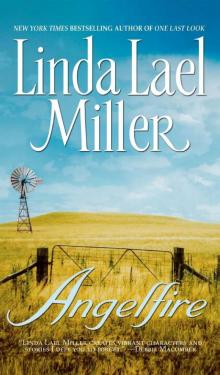 Angelfire
Angelfire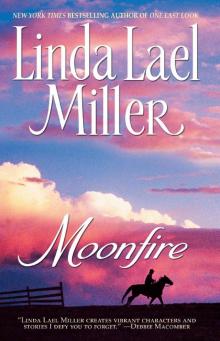 Moonfire
Moonfire The Yankee Widow
The Yankee Widow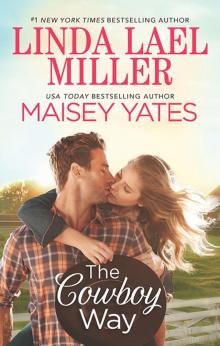 The Cowboy Way
The Cowboy Way Country Strong--A Novel
Country Strong--A Novel Forever and a Day
Forever and a Day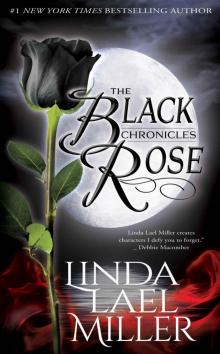 The Black Rose Chronicles
The Black Rose Chronicles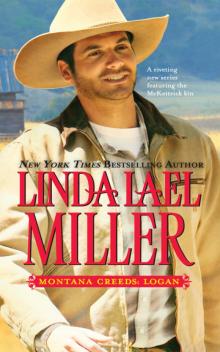 Montana Creeds: Logan
Montana Creeds: Logan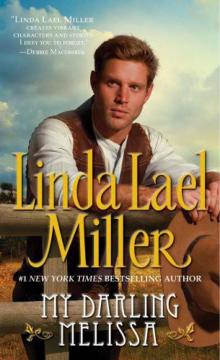 My Darling Melissa
My Darling Melissa Skye
Skye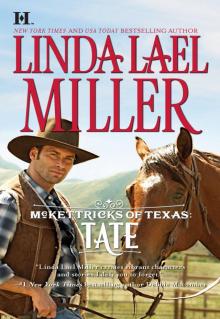 McKettricks of Texas: Tate
McKettricks of Texas: Tate Springwater Seasons
Springwater Seasons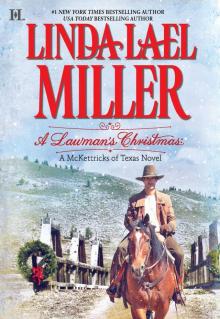 A Lawman's Christmas
A Lawman's Christmas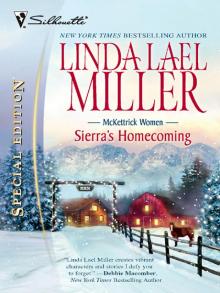 Sierra's Homecoming
Sierra's Homecoming![Parable, Montana [4] Big Sky Summer Read online](http://i1.bookreadfree.com/i/03/22/parable_montana_4_big_sky_summer_preview.jpg) Parable, Montana [4] Big Sky Summer
Parable, Montana [4] Big Sky Summer One Last Weekend
One Last Weekend A Stone Creek Collection, Volume 2
A Stone Creek Collection, Volume 2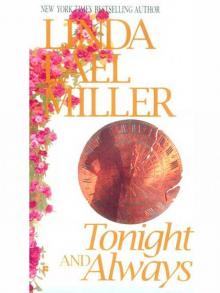 Tonight and Always
Tonight and Always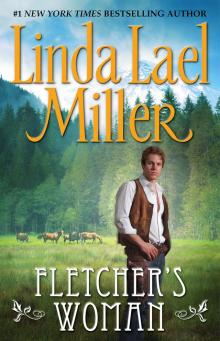 Fletcher's Woman
Fletcher's Woman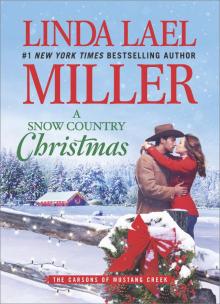 A Snow Country Christmas
A Snow Country Christmas The Last Chance Cafe
The Last Chance Cafe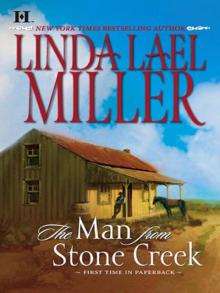 The Man from Stone Creek
The Man from Stone Creek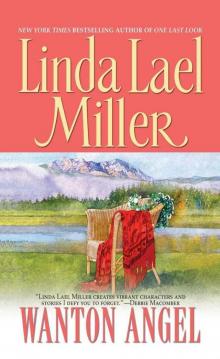 Wanton Angel
Wanton Angel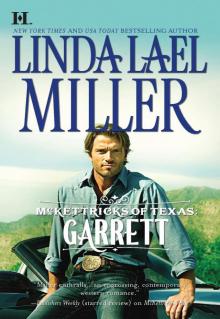 McKettricks of Texas: Garrett
McKettricks of Texas: Garrett Memory's Embrace
Memory's Embrace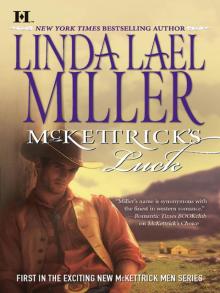 McKettrick's Luck
McKettrick's Luck Pirates
Pirates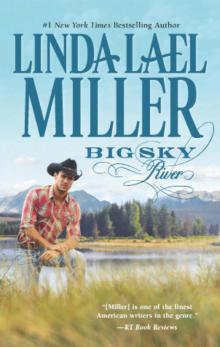 Big Sky River
Big Sky River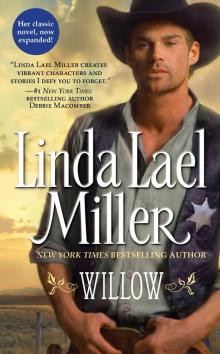 Willow: A Novel (No Series)
Willow: A Novel (No Series) The McKettrick Legend: Sierra's HomecomingThe McKettrick Way (Hqn)
The McKettrick Legend: Sierra's HomecomingThe McKettrick Way (Hqn) Glory, Glory: Snowbound with the Bodyguard
Glory, Glory: Snowbound with the Bodyguard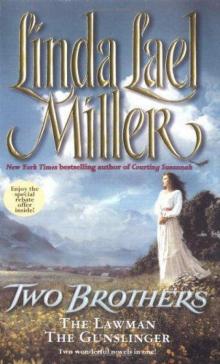 Two Brothers
Two Brothers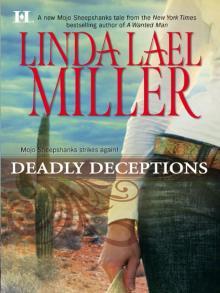 Deadly Deceptions
Deadly Deceptions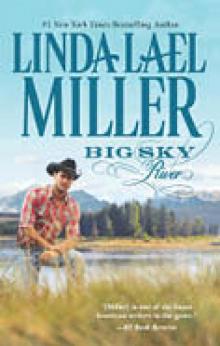 Big Sky Secrets
Big Sky Secrets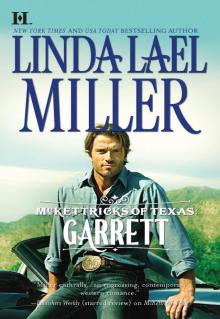 Garrett
Garrett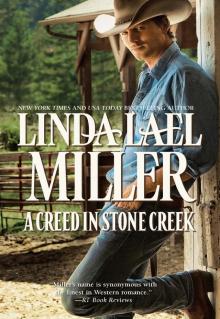 A Creed in Stone Creek
A Creed in Stone Creek Megan
Megan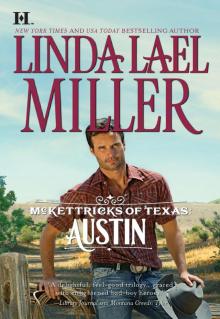 McKettricks of Texas: Austin
McKettricks of Texas: Austin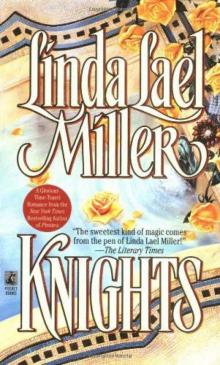 Knights
Knights High Country Bride
High Country Bride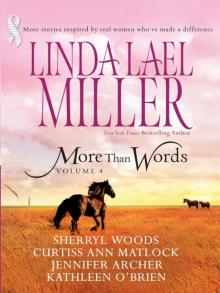 More Than Words Volume 4
More Than Words Volume 4 Glory, Glory
Glory, Glory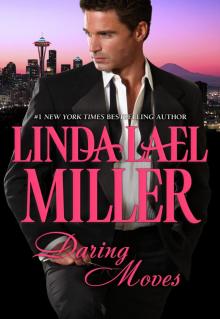 Daring Moves
Daring Moves Lily and the Major
Lily and the Major Courting Susannah
Courting Susannah Banner O'Brien
Banner O'Brien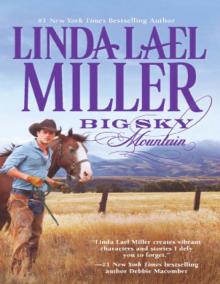 Big Sky Mountain
Big Sky Mountain Linda Lael Miller Bundle
Linda Lael Miller Bundle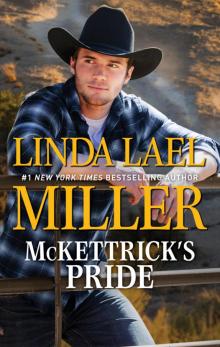 McKettrick's Pride
McKettrick's Pride A Stone Creek Collection Volume 1
A Stone Creek Collection Volume 1 A Wanted Man
A Wanted Man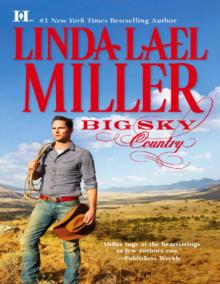 Big Sky Country
Big Sky Country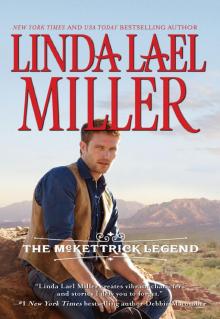 The McKettrick Legend
The McKettrick Legend Christy
Christy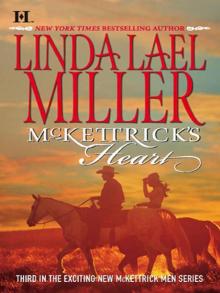 McKettrick's Heart
McKettrick's Heart Resurrection
Resurrection Arizona Heat
Arizona Heat Secondhand Bride
Secondhand Bride Snowflakes on the Sea
Snowflakes on the Sea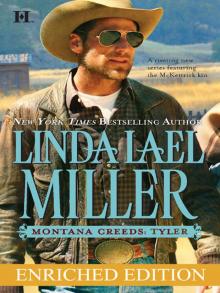 Montana Creeds: Tyler
Montana Creeds: Tyler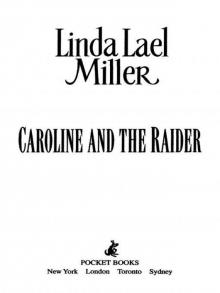 CAROLINE AND THE RAIDER
CAROLINE AND THE RAIDER A Proposal for Christmas: State SecretsThe Five Days of Christmas
A Proposal for Christmas: State SecretsThe Five Days of Christmas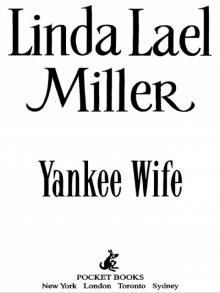 Yankee Wife
Yankee Wife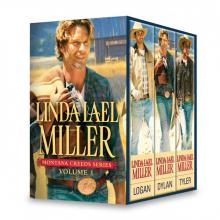 Linda Lael Miller Montana Creeds Series Volume 1: Montana Creeds: LoganMontana Creeds: DylanMontana Creeds: Tyler
Linda Lael Miller Montana Creeds Series Volume 1: Montana Creeds: LoganMontana Creeds: DylanMontana Creeds: Tyler The Christmas Brides
The Christmas Brides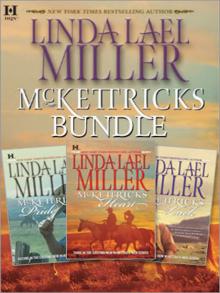 McKettricks Bundle
McKettricks Bundle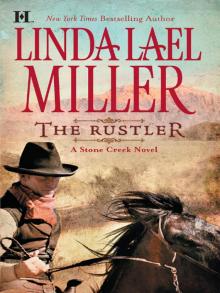 The Rustler
The Rustler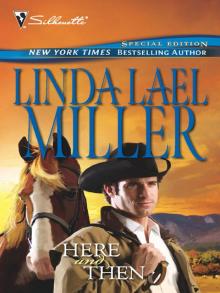 Here and Then
Here and Then Only Forever
Only Forever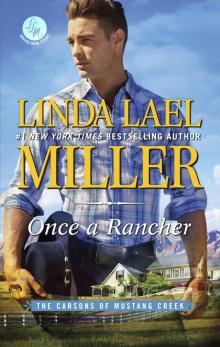 Once a Rancher
Once a Rancher The 24 Days of Christmas
The 24 Days of Christmas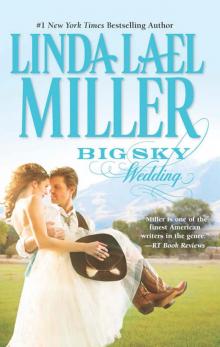 Big Sky Wedding
Big Sky Wedding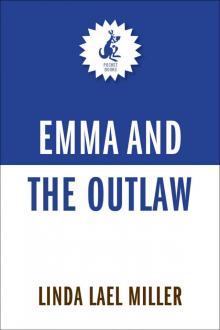 Emma and the Outlaw
Emma and the Outlaw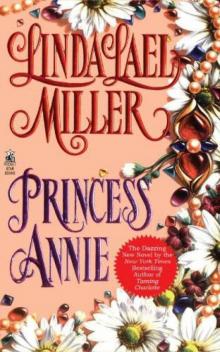 Princess Annie
Princess Annie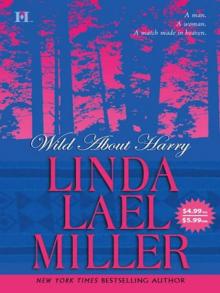 Wild About Harry
Wild About Harry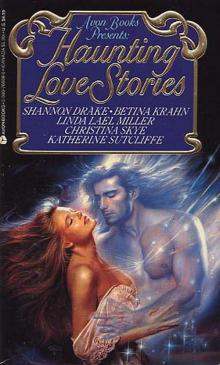 That Other Katherine
That Other Katherine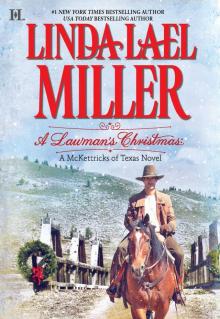 A Lawman's Christmas: A McKettricks of Texas Novel
A Lawman's Christmas: A McKettricks of Texas Novel Just Kate: His Only Wife (Bestselling Author Collection)
Just Kate: His Only Wife (Bestselling Author Collection)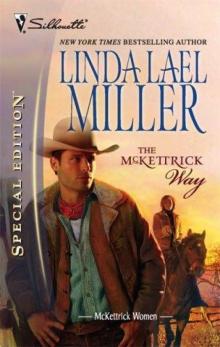 The McKettrick Way
The McKettrick Way Part of the Bargain
Part of the Bargain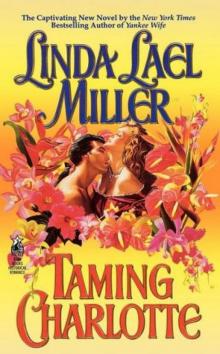 Taming Charlotte
Taming Charlotte Holiday in Stone Creek
Holiday in Stone Creek One Last Look
One Last Look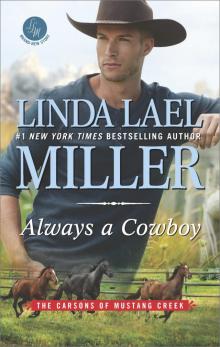 Always a Cowboy
Always a Cowboy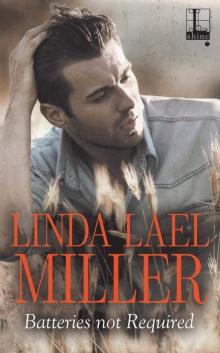 Batteries Not Required
Batteries Not Required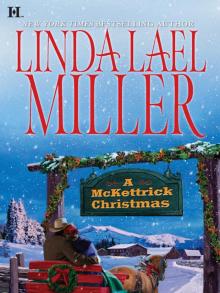 A McKettrick Christmas
A McKettrick Christmas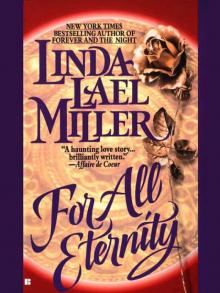 For All Eternity
For All Eternity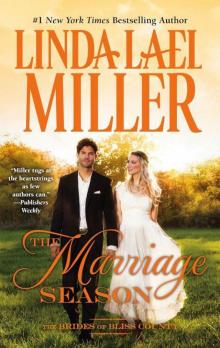 The Marriage Season
The Marriage Season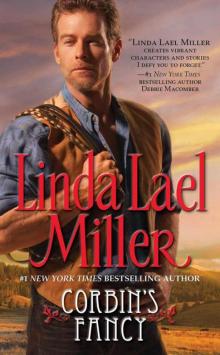 Corbin's Fancy
Corbin's Fancy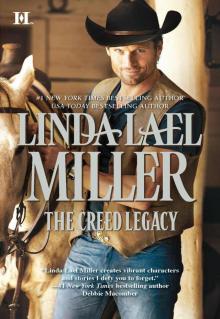 The Creed Legacy
The Creed Legacy Springwater Wedding
Springwater Wedding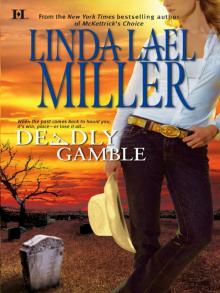 Deadly Gamble
Deadly Gamble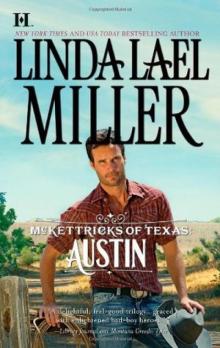 Austin
Austin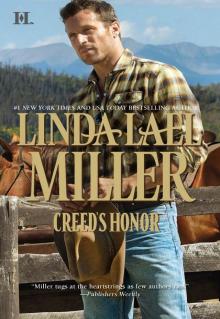 Creed's Honor
Creed's Honor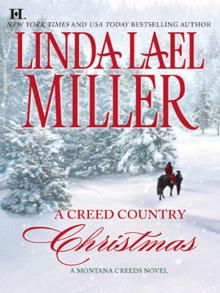 A Creed Country Christmas
A Creed Country Christmas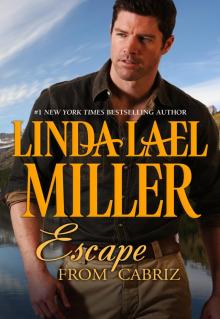 Escape from Cabriz
Escape from Cabriz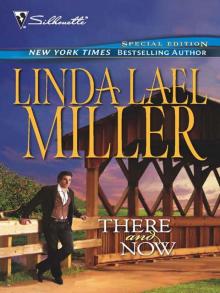 There and Now
There and Now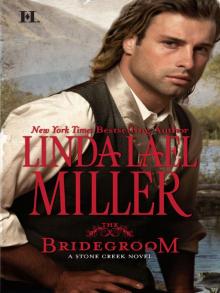 The Bridegroom
The Bridegroom State Secrets
State Secrets Bridget
Bridget